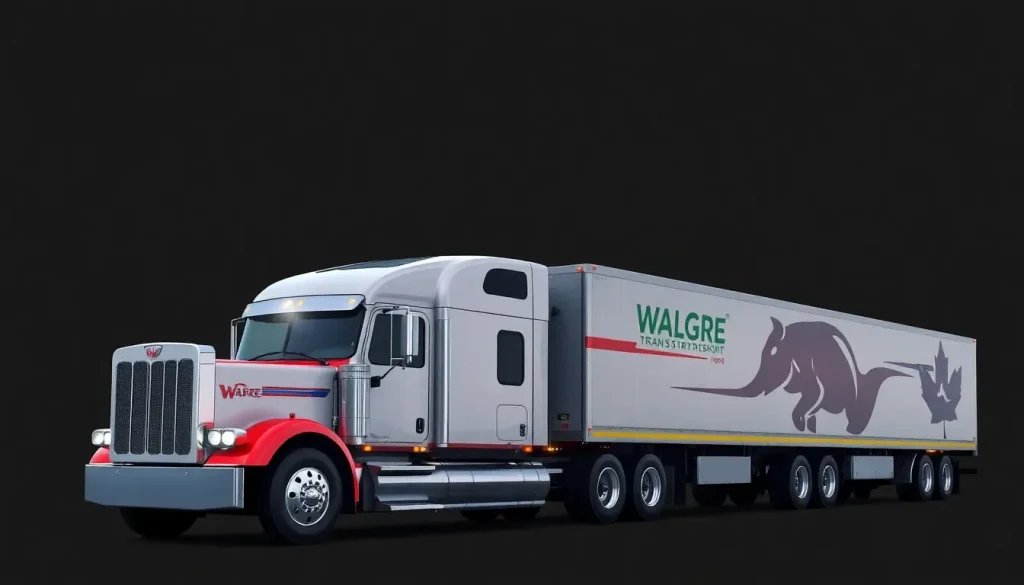Walgre Transport continues restructuring under CCAA protections

In the ever-evolving landscape of the North American trucking industry, companies face numerous challenges that can lead to significant operational shifts. One such organization, Walgre Transport, is currently navigating these turbulent waters as it undergoes a restructuring process under the protection of the Companies’ Creditors Arrangement Act (CCAA). Understanding the implications of this restructuring is crucial for both industry stakeholders and the wider economic landscape.
Understanding the CCAA restructuring process
The Companies’ Creditors Arrangement Act (CCAA) is a crucial piece of legislation in Canada that allows companies facing financial difficulties to restructure their business while providing protection from creditors. This framework is particularly important for companies in sectors like trucking, where economic fluctuations can significantly impact operations.
CCAA restructuring provides companies with a temporary stay of proceedings, allowing them to negotiate with creditors without the constant threat of legal action. This process is designed to facilitate a turnaround, enabling businesses to stabilize their operations and ultimately emerge stronger.
Some key features of the CCAA process include:
- Protection from creditors during the restructuring period.
- Opportunity to negotiate new terms with suppliers and lenders.
- Ability to shed unproductive assets or non-essential equipment.
- Support from a court-appointed monitor to oversee the process.
What is Section 32 of the CCAA?
Section 32 of the CCAA specifically addresses the issue of debtor-in-possession financing. This provision enables companies to secure loans that are necessary for continuing operations during the restructuring process. Such financing is vital as it provides the immediate liquidity needed to sustain daily business operations while negotiations with creditors are ongoing.
This financing often comes with specific terms that prioritize repayment in the event of a liquidation, ensuring that lenders are incentivized to support the restructuring process. In the case of Walgre Transport, securing this type of financing has been a critical step in their path to recovery.
Current situation of Walgre Transport
Walgre Transport, along with its affiliate 2865647 Ontario Ltd., has officially announced its intention to continue restructuring under the CCAA. The company, based in Mississauga, Ontario, operates a significant fleet comprising approximately 182 tractors and 426 trailers. They employ around 225 individuals, providing cross-border freight services, which are essential to the logistics network in North America.
Recent court filings have indicated that the trucking and logistics industry is currently experiencing a significant downturn. Factors contributing to this trend include:
- Rising interest rates impacting operational costs.
- Increased fuel prices affecting profitability.
- Tariffs imposed by the United States, creating uncertainty and additional expenses.
As a result of these challenges, Walgre Transport has found itself with excess fleet capacity, which has limited its ability to meet financial obligations as they arise. The company's restructuring efforts are aimed at addressing these issues and ensuring long-term viability.
Steps taken during the restructuring process
Walgre Transport’s journey through the restructuring process began with the filing of a Notice of Intention (NOI) under the Bankruptcy and Insolvency Act in June. This initial step was crucial in signaling their intent to restructure and provided a framework for ongoing negotiations with creditors.
The court-appointed monitor, Doane Grant Thornton, has highlighted several key actions taken by Walgre Transport:
- Surrendering non-essential equipment, which includes 50 tractors and 60 trailers.
- Securing debtor-in-possession financing to maintain operational liquidity.
- Engaging in good faith negotiations with creditors to reach a resolution.
Furthermore, the restructuring plan involves selling the head office in Mississauga, with the sale expected to close in December. This strategic move is aimed at alleviating some of the financial pressures the company is currently facing.
Challenges in the trucking industry
The challenges faced by Walgre Transport are reflective of broader issues within the trucking industry. As noted in the monitor's report, the North American economic and political climate has experienced significant shifts, leading to:
- Increased consumer uncertainty and reduced demand for shipping services.
- Fluctuations in tariff regulations affecting cross-border trade.
- Heightened operational costs due to rising prices for fuel and equipment maintenance.
These challenges have led to a decrease in customer volumes and underutilization of fleet capacity, resulting in serious liquidity issues for many companies, including Walgre Transport. The restructuring under CCAA aims to mitigate these challenges and set a course for future stability.
Future outlook for Walgre Transport
As Walgre Transport continues its restructuring efforts under the CCAA, the company remains focused on regaining financial stability and operational efficiency. The court's protection allows them the flexibility needed to implement necessary changes without immediate pressure from creditors.
The outcome of this restructuring could set a precedent for other companies facing similar challenges in the trucking industry. Should Walgre successfully navigate this process, it may emerge as a stronger entity, better equipped to handle future economic fluctuations and changes in the market landscape.
Industry experts will be closely watching Walgre Transport's progress, as their restructuring journey could provide valuable insights into effective strategies for managing financial difficulties in the high-stakes world of transportation and logistics.




Leave a Reply